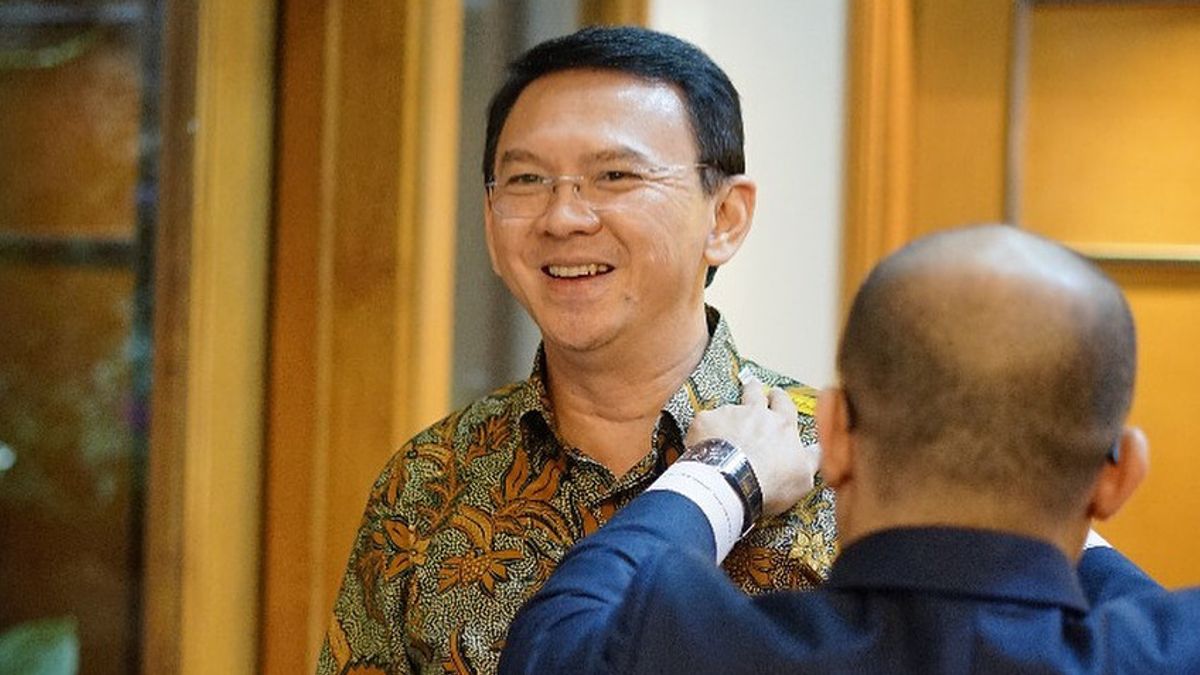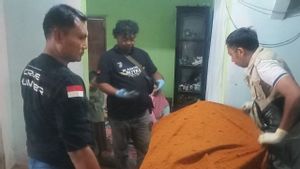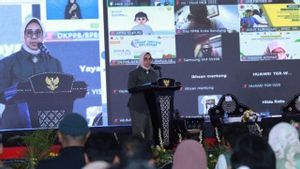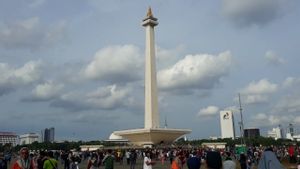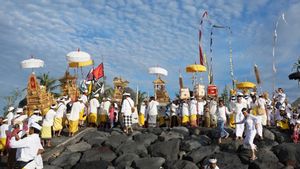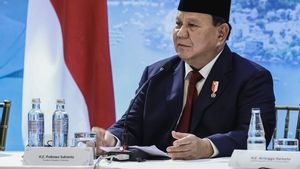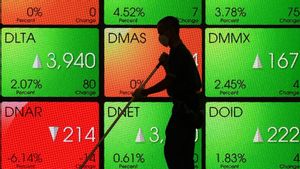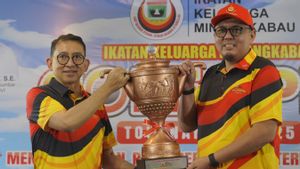JAKARTA - Basuki Tjahaja Purnama alias Ahok is reportedly going to fill the position of President Commissioner at Pertamina. Rejection came from various parties. However, this is not the first time Ahok has been rejected by the public. In the past, Ahok will still pass. How about this time?
Exactly five years ago, 19 November 2014, Ahok was appointed as the Governor of DKI Jakarta to replace Joko Widodo (Jokowi) who was then running as president. The moment of the inauguration was marked by controversy. Various mass organizations and even a number of groups in the parliament rejected Ahok.
At the DKI Jakarta DPRD, Ahok's road was blocked by the Red and White Coalition fronted by the Gerindra Party, Ahok's former party. The friction between Ahok and Gerindra was triggered by Ahok's departure from the party led by Prabowo Subianto. Ahok admitted that he did not agree with Gerindra's stance in supporting regional head elections by the DPRD.
Understandably, Ahok's political career from the beginning was built with a system of elections directly elected by the people. However, Gerindra interpreted Ahok's political stance as a form of insubordination and ingratitude. It is nothing. Gerindra, however, was the vehicle that brought Ahok to the seat of deputy governor of DKI Jakarta in 2012.
Gerindra's heartache was brought to the political floor of the 2018 Capital City. Gerindra and her coalition party refused Ahok's inauguration to the point that the Supreme Court issued a fatwa. However, the MA fatwa did not have much effect.
This was because at that time there were other institutions that had more authority to give legal status regarding the validity of Ahok's inauguration as definitive Governor of DKI Jakarta. The fatwa given is only limited to opinions, so legality remains with the DPRD and the Ministry of Home Affairs (Mendagri).
In addition, the rejection of Ahok's inauguration as governor was also echoed by the Islamic Defenders Front (FPI) mass organization, the Apostolic Defenders Movement and the Islamic Defenders Army. They held a demonstration in front of the DPR RI Building as a form of protest against Ahok's inauguration.
According to Muchsin Alatas, the FPI spokesman at that time, as reported by Tempo.co, the main reason the protesters rejected Ahok was because of his religious background. According to him, Ahok, who is ethnic Chinese, is considered to be discriminating against Muslims.
"There should not be any leader who is not Muslim," Muchsin told tempo.co.
He accused Ahok's leadership of being discriminatory against Islam because they often prohibited activities related to Islamic traditions. For example, FPI accused Ahok of banning tablig akbar activities at Monas, traveling takbir, and slaughtering sacrificial animals. Meanwhile, Ahok even allowed new year celebrations that were not in accordance with Islamic teachings and thus closed the protocol roads.
In addition, Ahok's character, who is considered to be blunt in speaking and often makes provocative statements, has received criticism from the Betawi Rempug Forum (FBR) group. That is also the reason they reject Ahok as governor.
"Ahok's babbling was unproductive, only provoking," said Betawi Forum Betawi Rempug Volunteer Volunteer Unit Head, Sani Airsan, still to tempo.co.
The various rejections did not make Ahok resign. He still passed. Until an event became the culmination of Ahok's refusal movement. At the end of his tenure as Governor of DKI Jakarta, Ahok stumbled on a case of blasphemy.
His campaign footage in the Thousand Islands went viral. The speech invited thousands of people to take to the streets in volumes of demonstrations. In the end, the judge found Ahok guilty and rewarded him with a prison sentence of one year eight months and 15 days.

Rejected by Pertamina workers
After being released from prison, Ahok joined the PDIP Party cadre. Now his name is becoming a byword because it is predicted to fill a strategic position in one of the BUMNs, namely PT Pertamina (Persero). However, the uncertain decision was preceded by rejection.
This rejection was voiced by the United Pertamina Workers Union Federation (FSPPB) by unfurling a banner at the Balongan Refinery, Indramayu, West Java. Quoting era.id, the banner reads: Pertamina is not a den of corruptors, nor is it a place of disgrace and a dirty mouth.
FSPPB President Arie Gumilar agreed. According to him, the banner installation at the Balongan Refinery illustrates the attitude of the federation. The reason is, there are still many people whom they think are more competent to lead BUMNs bearing the sea horse symbol.
"Pak Ahok is flawed in material requirements. There are also many capable internal Pertamina cadres," said Arie in a short message, Jakarta, Friday, November 15.
Ahok's refusal to take up the important position of Pertamina seemed to be considered reasonable by the Research Director of the Center of Economic Reform (CORE) Piter Abdullah.
He doubts that Ahok can solve all the problems at Pertamina. One Ahok, for him it will not be possible to solve complex problems in BUMN.
Apart from that, another concern that includes the discourse on Ahok's advancement to the seat of Pertamina 1 is the conflict of interest between Ahok and his party, the PDIP, which stands as the ruler.
PDIP answered immediately. PDIP Secretary General Hasto Kristianto said PDIP promised to protect Ahok in BUMN from conflicts of interest. Hasto's statement also denies Ahok's insistence on resigning from the PDIP if he persists in advancing to Pertamina.
"You don't have to leave because Pak Ahok as a party member can be assigned according to his professional abilities. The important thing is that the party ensures that there is no conflict of interest," Hasto told reporters, Tuesday, November 19.
On that occasion, Hasto also spoke about Ahok's refusal from the Pertamina Workers Union. He said the protests and objections were excessive. This is because the decision on the names of office holders in the state-owned company will be taken at the General Meeting of Shareholders (GMS).
This decision cannot be disturbed by anyone, including the labor union. "BUMN and all of its employees are not political organizations," said Hasto.
"He is a business entity that is bound by the norms of business ethics, but also carries out state duties to become a state-owned enterprise in order to advance the public interest through a strategic business sector which according to the constitution must be controlled by the state," he added.
UU looks at Ahok's recidivist status
Another reason for the rejection of Ahok's advancement to Pertamina was the status of Ahok, who was a former convict, aka a recidivist. Some parties consider that the appointment of BUMN leadership must be carried out wisely by considering the track record of a person to be appointed.
However, referring to Law No. 19/2003 on BUMN, Ahok could be the boss of a state company. Because in article 45 paragraph (1), the prohibition for someone to become a candidate for directors of BUMN is that they have committed a criminal act that has caused losses to the state.
The following reads the article:
Those who can be appointed as members of the Board of Directors are individuals who are capable of carrying out legal acts and have never been declared bankrupt or have become members of the Board of Directors or Commissioners or the Board of Trustees who are found guilty of causing a company or Perum to be declared bankrupt or people who have never been convicted of committing a crime that is detrimental. state finances.
So, what do you think? Could it be that Ahok still drove the BUMN 'Kuda Laut'?
The English, Chinese, Japanese, Arabic, and French versions are automatically generated by the AI. So there may still be inaccuracies in translating, please always see Indonesian as our main language. (system supported by DigitalSiber.id)
